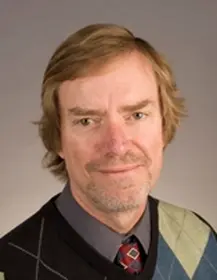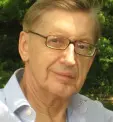The Historical Evolution of Money and Debt
Sep 11, 2012
Overview
This seminar will explore the social structures that have historically underpinned debt and money systems, and apply insights gleamed from them to our contemporary economic problems.
Outline
- ROHAN GREY: Seminar Introduction 0:00
- WILLIAM V. HARRIS: Opening Moderator Remarks 3:07
- L. RANDALL WRAY: Presentation: L. Randall Wray 4:45
- L. RANDALL WRAY: Introductory “Quiz” on Sovereign Currency 5:10
- L. RANDALL WRAY: Basics of Sovereign Currency 7:41
- L. RANDALL WRAY: “The government can never run out of dollars. It can never be forced to default.” 7:57
- L. RANDALL WRAY: Paul Samuelson on the “Old Time Religion” of Deficits 9:09
- L. RANDALL WRAY: The Modern Money Framework 10: 15
- L. RANDALL WRAY: Are these things money? – Ancient accounting systems 10: 38
- L. RANDALL WRAY: Tally Sticks 11: 27
- L. RANDALL WRAY: Contemporary money: records of credits and debits 12:01
- L. RANDALL WRAY: “What is money? A social unit of account. And almost always a state unit of account.” 12:23
- L. RANDALL WRAY: Minsky: Anybody can create money…The problem lies in getting it accepted. 13: 20
- L. RANDALL WRAY: What Backs Up Money? 14: 07
- L. RANDALL WRAY: “Use of currency and value of ‘M’ are based on the power of the issuing authority, not on intrinsic value.” 15:35
- L. RANDALL WRAY: The purpose of creating a monetary system was to move resources to the public sector. 16: 10
- L. RANDALL WRAY: Taxes Drive Money 16:45
- L. RANDALL WRAY: The modern government spends through keystrokes. 17:31
- L. RANDALL WRAY: Why does the government sell bonds? 18:40
- L. RANDALL WRAY: Deficit spending net credits reserves. 19:19
- L. RANDALL WRAY: Bonds drain excess reserves. 19:40
- L. RANDALL WRAY: Bonds are monetary operations, not part of fiscal operations. 20:18
- L. RANDALL WRAY: Central Bank Operations 20:18
- L. RANDALL WRAY: Central banks always operate with an overnight interest rate target. 20:53
- L. RANDALL WRAY: The central bank sets the interest rate through open market operations. 21:17
- L. RANDALL WRAY: Non-sovereign currencies cannot set the interest rate. 21:48
- L. RANDALL WRAY: Policy Implications 22:25
- L. RANDALL WRAY: Abba Lerner and Functional Finance 22:26
- L. RANDALL WRAY: Self imposed government spending restraints (budgeting process, debt limits) 23:40
- L. RANDALL WRAY: Monetary operations cannot create net credits. They can only drive the interest rate to zero. 26:08
- L. RANDALL WRAY: The Euro: A non-sovereign currency 27:19
- L. RANDALL WRAY: Conclusions and Caveats 28:35
- WILLIAM V. HARRIS: Audience Questions to L. Randall Wray 32:05
- AUDIENCE: Question on the purpose of servicing national debt interest. 32:30
- L. RANDALL WRAY: Answer: Currency is non interest paying debt. Bank reserves are central bank debt. 33: 27
- L. RANDALL WRAY: The government offers interest bearing debt to hit the overnight interest rate target. 35: 50
- L. RANDALL WRAY: “The government cannot sell those bonds unless you already have government debt to buy them. ” 35: 58
- AUDIENCE: Question: Does interest bearing government debt redistribute wealth? 39:15
- L. RANDALL WRAY: Policy implications depend on who holds the debt. 39:35
- AUDIENCE: Question: Why does the government sell debt to foreigners? 40:25
- L. RANDALL WRAY: Foreigners accumulate dollar denominated reserves. Offering them interest bearing assets is a policy choice. 40:50
- AUDIENCE: Question on the purpose of servicing national debt interest. 32:30
- MICHAEL HUDSON: Presentation: Michael Hudson 43:40
- MICHAEL HUDSON: Introduction: Historical and Neoclassical Visions of Money 43:41
- MICHAEL HUDSON: Roots of surplus, credit, and money in ancient Mesopotamia 47:30
- MICHAEL HUDSON: Sumerian institutions as sources of employment, economic coordination, social insurance, and interest 50:00
- MICHAEL HUDSON: Legally set exchange rates denominated in grain and silver 51:50
- MICHAEL HUDSON: Debt annulment as an ancient economic necessity 54:00
- MICHAEL HUDSON: “There was a general understanding that the debts tended to grow faster than the means to pay.” 54:55
- MICHAEL HUDSON: Babylonian understanding of interest rates relative to agricultural yields 56:00
- MICHAEL HUDSON: Roman economic oligarchy: violence to enforce debts 58:00
- MICHAEL HUDSON: Medieval era and the emergence of public debts 59:00
- MICHAEL HUDSON: The modern era and “debt oligarchy” 1:01:00
- MICHAEL HUDSON: “Money is debt deflation” 1:02:25
- MICHAEL HUDSON: “99% of money” is spent on asset purchases, not goods and services. 1:09:12
- WILLIAM V. HARRIS: Audience/Moderator Questions 1:09:40
- WILLIAM V. HARRIS: Question: Is there any difference between money and wealth? 1:11:50
- MICHAEL HUDSON: Answer: Real wealth can be tangible means of production. Financial wealth is not real wealth. 1:12:00
- AUDIENCE: Question: How and when will the Euro debt problem be resolved? 1:13:30
- MICHAEL HUDSON: Answer: Debts that can’t be paid won’t be. The question is how to deflate the debts. 1:14:25
- AUDIENCE: Question: Why doesn’t the political discourse acknowledge this understanding of public debt? Why are we worried about Chinese bond-holders? 1:16:30
- MICHAEL HUDSON: Answer: The US has an interest in providing financial assets to foreign investors who help finance American military spending (the chief source of the deficit). 1:17:35
- AUDIENCE: Question: Is a money and credit based system good? Could we base a global monetary system on carbon control? 1:20:50
- L. RANDALL WRAY: Answer: We don’t claim sovereign currency is the ideal system. But it may be the best system now, given the difficulties of international coordination. 1:24:00
- AUDIENCE: Question: Is China’s accumulation of dollar denominated assets rational? Why don’t they invest in raising their standard of living? 1:26:32
- MICHAEL HUDSON: Answer: It is a security measure. And it gave the West financial incentive to provide China with a technological base for industrial development. 1:27:18
- AUDIENCE: Question: How would you explain a currency crisis? How does power of the issuer determine currency value? 1:29:00
- L. RANDALL WRAY: Answer: We confined our presentation today to free floating sovereign currencies. Currency pegs complicate this analysis. Fixed ex 1:29:40
- L. RANDALL WRAY: Currency pegs reduce policy space. 1:30:45
- AUDIENCE: Questions: Does a sovereign country need global cooperation to pull out of a recession? How does paying interest on reserves affect the need to sell bonds? What if banks don’t want to buy bonds? Who were the winners and losers of Nixon closing the gold window? 1:32:10
- L. RANDALL WRAY: Answer: A sovereign nation can buy anything affordable in its own currency. You can certainly employ the unemployed. You could conceivable still have poverty or hunger. 1:32:20
- L. RANDALL WRAY: Answer: It’s okay if banks don’t want to buy bonds. It means they’re happy to hold reserves. We in fact require certain banks to buy bonds when the government offers them. 1:32:50
- MICHAEL HUDSON: Answer: We closed the gold window because of the Vietnam War. We devised a system to force people to use US Treasuries instead. It was imposed under the threat of military force. 1:34:56
- L. RANDALL WRAY: Answer: Interest on reserves provides a floor to the overnight lending rate. 1:37:15
- WILLIAM V. HARRIS: Closing Moderator Remarks 1:38:20
Participants

Speaker
Michael Hudson
President
The Institute for the Study of Long-Term Economic Trends

Speaker
L. Randall Wray
Professor of Economics and Research Director
Center for Full Employment and Price Stability at the University of Missouri-Kansas City

Speaker
William Vernon Harris
Professor of History and Director of the Center for the Ancient Mediterranean
Columbia University

Moderator
William Vernon Harris
Professor of History and Director of the Center for the Ancient Mediterranean
Columbia University
Core Reading
Money: An Alternative Story
Money: An Alternative Story. Kansas City, MO: Center for Full Employment and Price Stability, 2005.
money-alternative_story.pdf